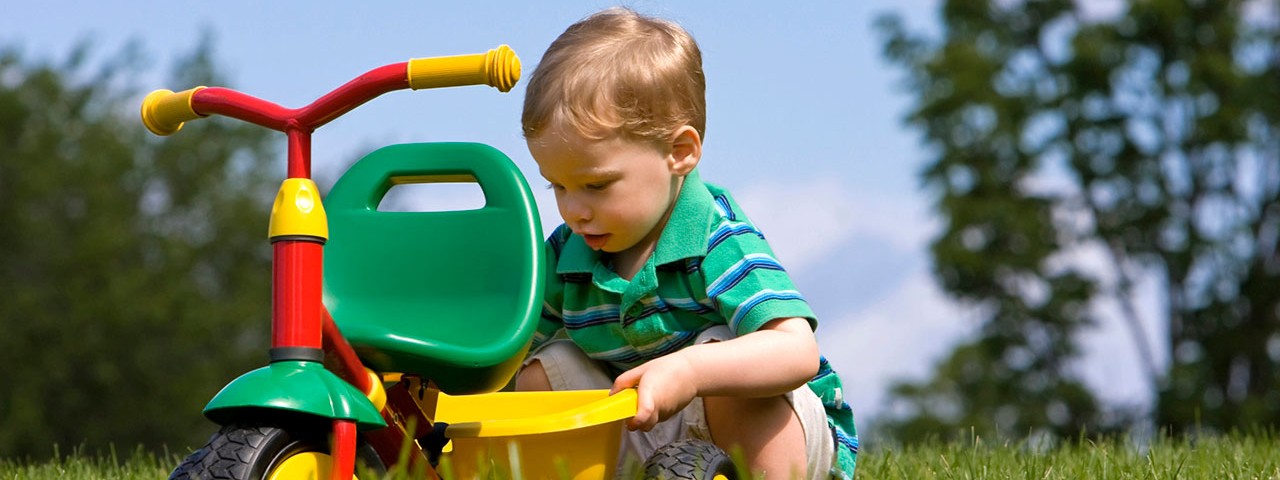Nurturing Independence in Young Children
- Tweet

When a baby is first born, he is totally dependent on his parents to take care of his every need. But parents are also responsible for establishing the foundation for future learning and adaptability. Nurturing independence in young children is a critical component of parenting. It promotes later self-sufficiency and self-reliance, and the process should begin during the earliest years of life.
How do you respond when your toddler says "Let ME do it!"? Tweet this!Certainly, during the first few months after a child is born, there are no outward signs of independence, yet a baby is already developing the skills that will support later independence. As time progresses, your baby learns to hold a bottle, to sit up on her own, to feed herself, and to crawl and walk. These are all sure signs of budding independence that you want your child to achieve. As she becomes more aware of her surroundings and develops a greater sense of self, you will find that she wants to do certain things without your assistance.
Toddlers Crave Independence
Extensive research on early childhood development shows that during their second year, infants begin to develop a sense of empowerment and competence that is spurred by language and speech development. They acquire a greater understanding of how to express themselves and how to meet some of their own needs.
During this period, children often express their innate desire to become more independent. “Let ME do it!” is a common request of young children who are discovering their own ability to navigate the world around them. At this stage, different parenting approaches can either nurture or hinder a child’s spirit of independence and sense of self-reliance.
Parenting Style Affects the Development of Independence
According to The Urban Child Institute, there are two major types of parenting - authoritative and authoritarian.
Authoritative parenting is firm and consistent. It encourages respect, but also encourages communication and feedback from your child. Parents who take an authoritative approach will promote positive outcomes in young children like independence, cooperation and motivation.
Authoritarian parenting, on the other hand, is high in control but low in warmth. It values obedience and order but not communication and flexibility. Authoritarian parenting can interfere with a child’s willingness to explore and impair the development of independence.
As a result, parents who adopt an authoritarian approach are actually setting the stage for negative outcomes like low self-esteem, social withdrawal, and behavior problems.
According to The Urban Child Institute, the foundation for later independence is built in early infancy, and is strengthened by sensitive, responsive, and authoritative parenting throughout the early years. Warmth and sensitivity help your child acquire the confidence and problem-solving skills to confront and overcome challenges later in life.
Some parents may find it difficult to ‘let go’ and to let their child become independent. Others will want to expedite the process of your child learning how to overcome obstacles on his own. Research suggests that both extremes can be harmful. Being overly protective or overly harsh with your child can cause fear and self-doubt, and undermine children’s growing independence.
Begin with The End in Mind
No parent wants to raise a helpless and totally dependent child. As such, it is important to keep in mind how positive parenting can nurture the development of life skills and coping traits. The Urban Child Institute has found that parental behaviors promoting independence include: showing sensitivity, helping your child remain goal-oriented, and helping him maintain a positive view of himself and his abilities.
Obstacles are easier to face if he is confident in his ability to succeed — independent of his parents’ assistance — yet secure in knowing that their support is available if he needs it.
Parenting is a delicate balancing act of being attentive to children’s need for attention and care, while also promoting the skills that will later help them rely on their own abilities. The first years of a child’s life are all about ensuring that your baby feels loved, and doing whatever it takes to provide everything that he needs. However, as he matures, it becomes just as important to nurture independence through sensitive, responsive, and authoritative parenting.
This article was written for the Tri-State Defender.
Tarrin McGhee is the owner of Pique Creative.
